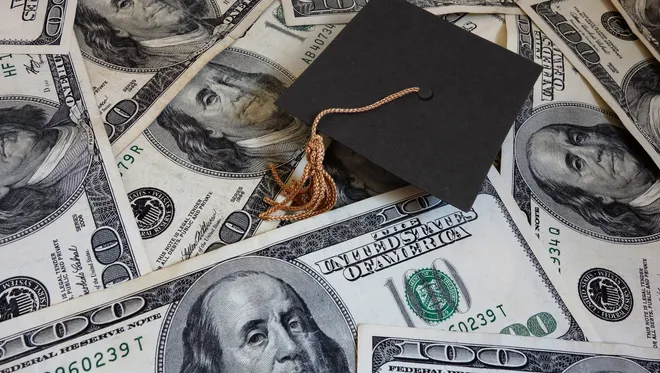It’s crunch time, with only a few weeks remaining before student loan repayments resume.
Starting September 1, interest will begin accruing again on those balances, followed by the first debt repayments in October.
While those are the most important dates to know, there are many more, including when you can enroll in President Joe Biden’s new payment plans and by when you need to enroll in autopay.
Nearly 44 million Americans held student loans valued at more than $1.6 trillion at the end of March, according to the New York Federal Reserve. After a 3-1/2-year break from repayments and interest, restarting student debt payments is sure to be challenging. To make the transition easier, here’s a rundown of the timeline of events that you should mark on your calendar:
August 1
The Biden administration launched a beta application for its new income-driven repayment plan called Saving on a Valuable Education, or SAVE, plan.
The plan may cut many borrowers’ previous monthly payments in half and leave some people with no monthly bill. Currently, SAVE increases the income exemption from 150% to 225% of the poverty line. It also eliminates unpaid monthly interest charges if you make your monthly payment on the principal, and it ends the need for your spouse to co-sign your application. Additional benefits start in July 2024.
You can apply for SAVE on the Department of Education website if you aren’t already enrolled in an income-driven repayment plan (IDR) or need to switch plans. If you’re already enrolled in the “REPAYE” income-driven plan, you’ll automatically be moved to the SAVE plan. If you apply now, your application will be processed before the official launch.
As long as you apply this summer, your application will be processed in time for your first payment due date. It may take your servicer a few weeks to process your request because they will need to obtain documentation of your income and family size.
- Also in August: Autopay is optional, but if you choose it, you’ll save 0.25% on your interest rate. On autopay, you’ll get a reminder ahead of each withdrawal, but you need to enroll and do so before the end of the month. If you were enrolled before the pause, you need to contact your servicer and reenroll. If you enrolled after the pause began, you’re already enrolled.
August 31
If you don’t plan to make a payment in September, your servicer may apply an administrative forbearance on your loan, so no payment is due. If you want to opt out of this forbearance and pay in September, you must notify your servicer by this date.
September 1
Interest begins to accrue again on your loan. If you choose not to pay in September, you will be charged interest for this month.
- Also in September: Many people will get their bill, with the payment amount and due date, at least 21 days before your due date.
October
Your first payment is due.
December 31
If you have a loan that isn’t held by the Department of Education, such as a commercially held Federal Family Education Loan (FFEL), school-held Perkins loan, or a Health Education Assistance Loan (HEAL), you’ll need to consolidate your loan into a new Direct Consolidation Loan before December 31, to get credit for that loan under the IDR account adjustment.
A one-time IDR account adjustment could change whether certain payments or months are credited toward your loan forgiveness. Borrowers who work in public service must submit an employment certification form and PSLF application no later than the end of 2023. If borrowers have payments remaining after the review, they’ll need to enroll in an IDR plan.

